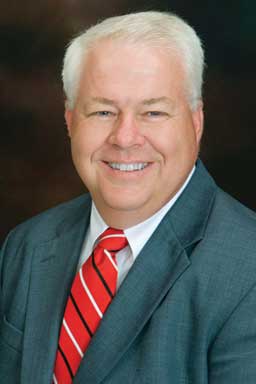President’s message: The year of the veterinarian
Veterinary medicine celebrates a major milestone this year. Two hundred and fifty years ago this year, the first school of veterinary medicine was established in Lyon, France, by Claude Bourgelat. Animal diseases and their control have been a major part of the history of veterinary medicine. In 1761, Professor Bourgelat and the university in Lyon wished to establish a more formalized training program for veterinarians. This school played a vital role in creating the veterinary profession as we know it today. Veterinarians throughout history have contributed to enhancements in food safety and livestock health.
Many things have changed in the veterinary profession in the last 250 years. However, many things remain the same. Veterinarians are well respected by the public and have a history of providing service to clients whenever there is a need to treat their pets. Veterinarians are passionate about what they do. They have devoted their lives to the practice of veterinary medicine. This has remained a constant for many years. I see it in the oldest of veterinarians and I also thankfully see it in the newly graduated. The old saying that “the client doesn’t care what you know until they know that you care” is very applicable to the veterinary profession even today. We are a caring profession, whether it’s for a sick kitten or swine producer with a disease outbreak threatening their very livelihood.
On the flip side, many things have changed about veterinary medicine in the last 250 years. The scientific and technological breakthroughs equate to improved pet health and longevity, improved food safety, and improved public health. Practicing veterinarians today have a multitude of diagnostic tests available to enable them to accurately diagnose animal disease, and medical treatments that effectively fight infections, allergies, and cancers that affect many species of animals. This enables pets to stay healthier longer and food-producing animals to be more efficient and provide a healthy food supply for the public.
The demographics of the veterinary profession have also changed as the demand for certain services have changed. The mixed-animal practitioner has given way to a more specialized practitioner. These specialists have further training and many have board certification. Swine practitioners are part of that specialty practice. Veterinarians in swine practice most certainly have “learner” as one of their strengths. The swine-health specialty board has continued to grow as more practicing veterinarians seek this certification. There are, however, underserved rural areas of the country that need veterinary service. The profession struggles in its efforts to understand this lack of service and how to best provide rural areas with better service.
In summary, veterinary medicine has come a long way in the last 250 years. Thankfully, there are things about the profession that have remained the same – principles and ethics that have guided us through the years and helped us gain the respect of the public. There have also been many changes that have made our profession more responsive to the needs of the public, changes that are science based and implemented with a concern and care for the patient that is in need of treatment.
Celebrate the 250th birthday of our profession and give thanks for the guidance of our past and anticipation for a future that is looking to us to help solve the problems of animals of all species.
— Randy Jones, DVM
